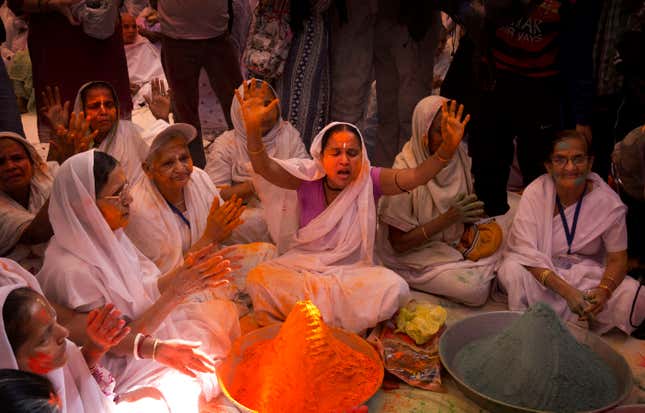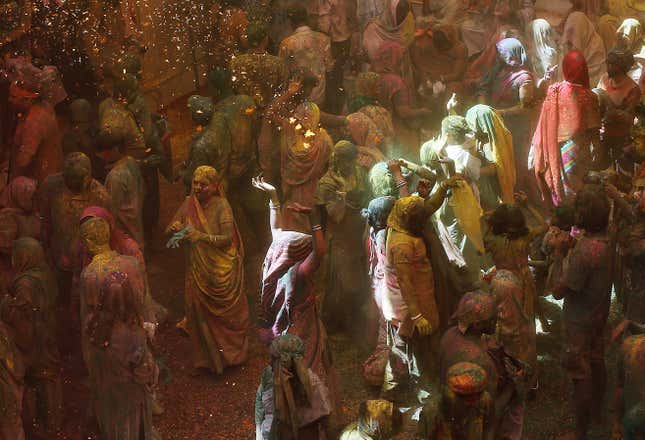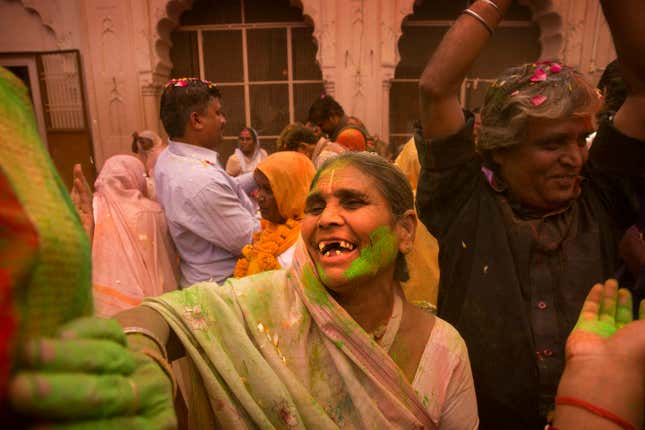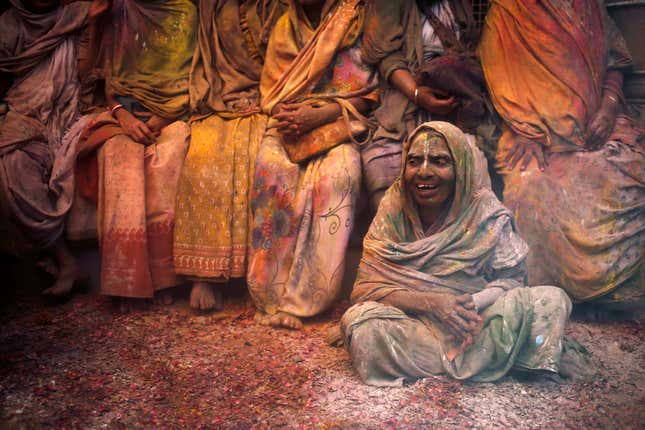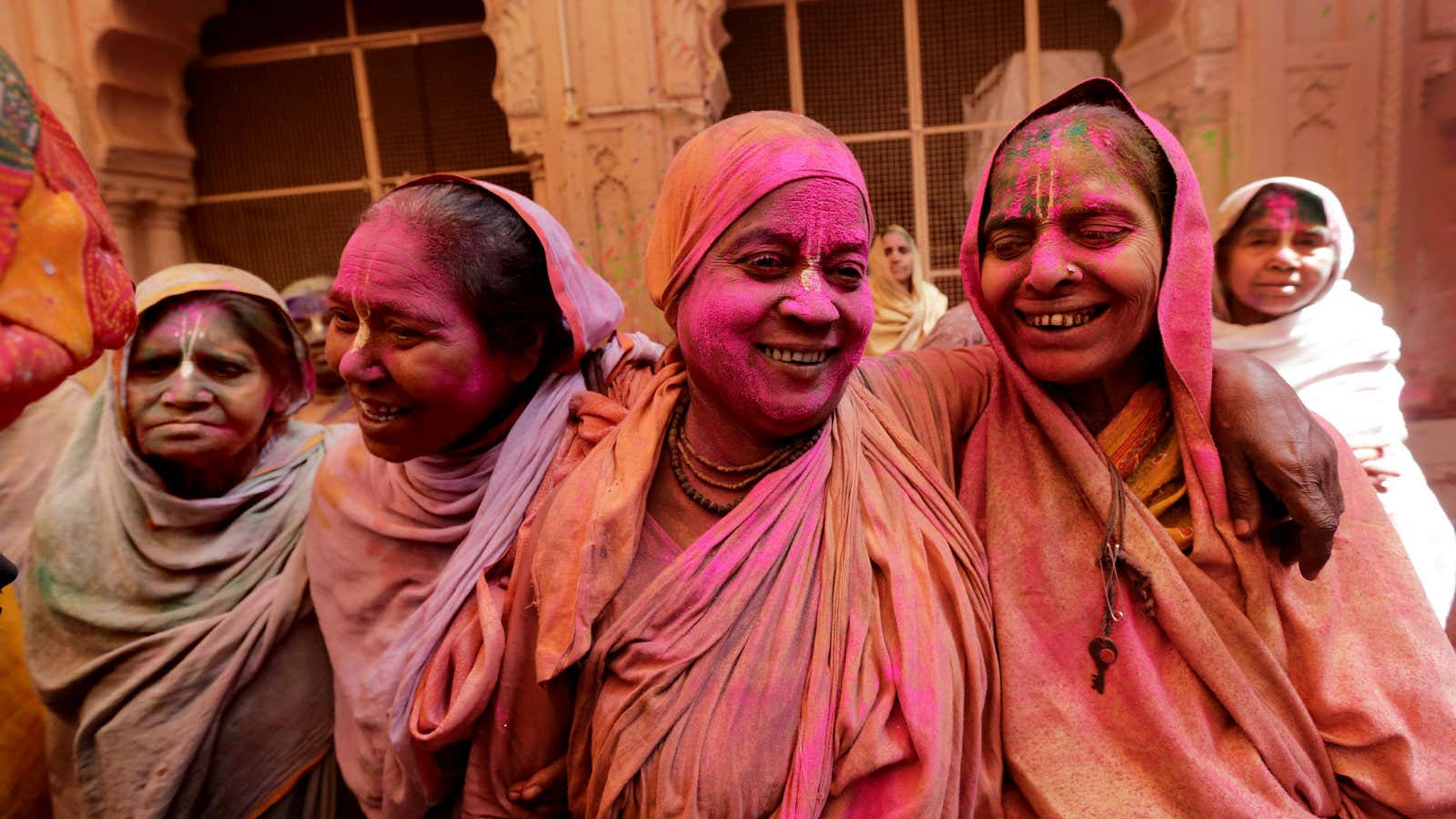On March 21, thousands of widowed women gathered at temples in Vrindavan in the north Indian state of Uttar Pradesh to celebrate the spring festival of Holi. In doing so, they violated a 400-year-old Hindu tradition.
Orthodox Hinduism demands that women renounce earthly pleasures after the death of their husbands and live out their days in worship. These women often are ostracised by the society and considered cursed. Typically, Holi—like most other festivals and auspicious ceremonies—is forbidden for Hindu widows, as it is believed that their involvement would bring bad luck for others. Widows are expected to dress only in white, and to stay away from the festival of colours.
This is not the first time these widows have celebrated Holi in recent times, but it is not a widely accepted practice.
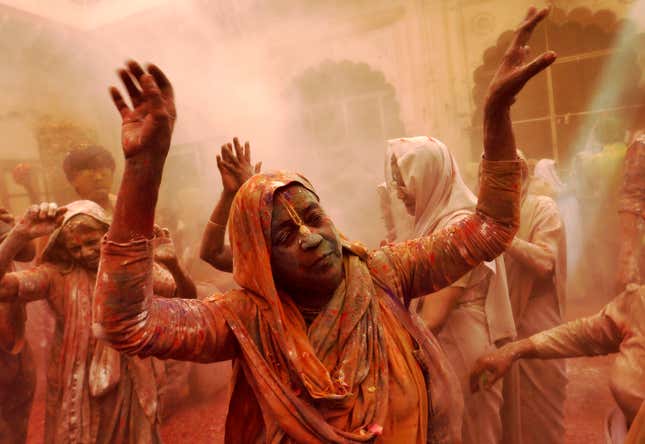
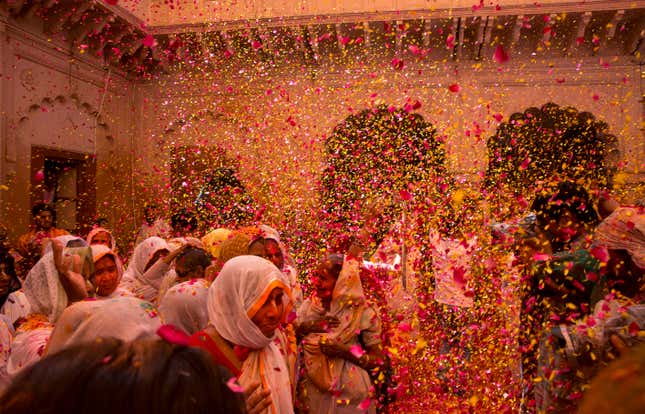
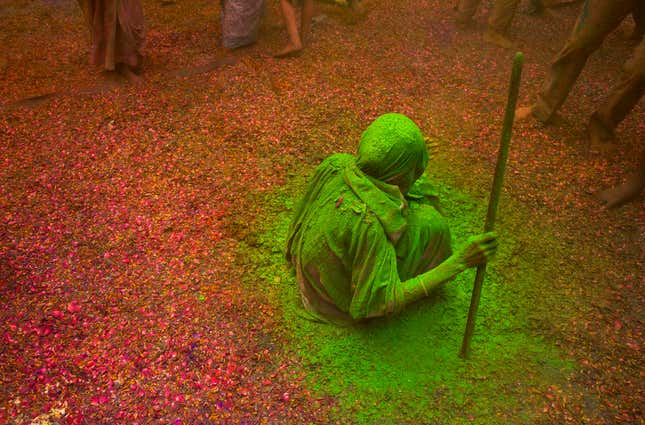
Though some of the old traditions related to widows have faded out in the metropolitan cities in India, they are still followed strictly in several of the country’s rural areas.
“Times have changed for the good. People no longer look at us as a curse. When I see these young children having no inhibitions in sharing their joys with women like me, I feel very happy,” Rasia, who lost her husband at the age of 17 and is now 65, told The Times of India during the Holi celebrations in Vrindavan.
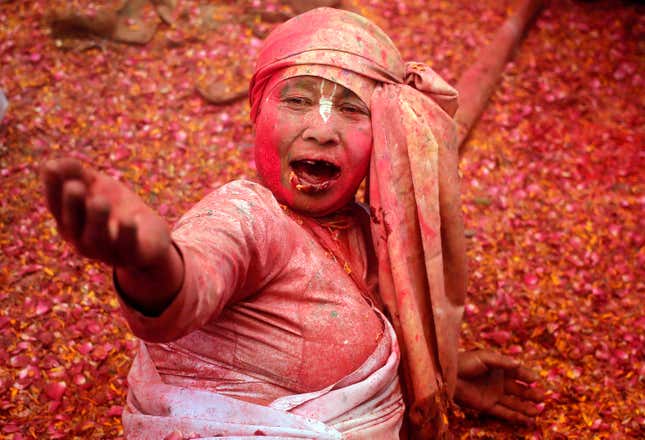
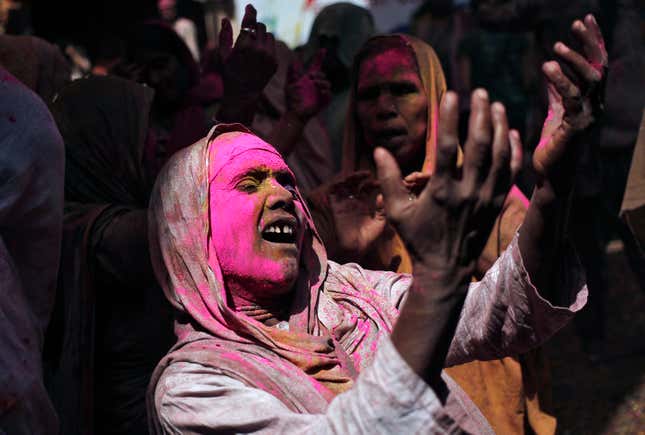
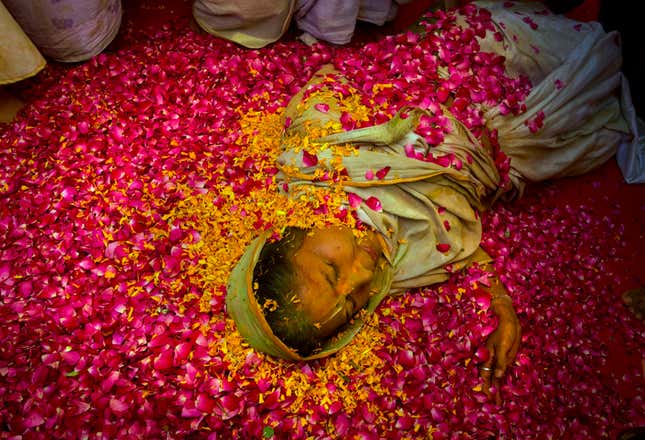
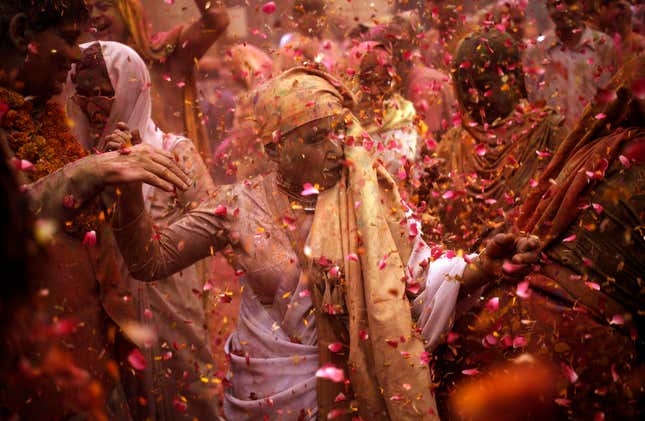
Though it is legal, remarriage by widows is not a widely accepted practice among Hindus in several parts of India.
A 2009 Stanford University research paper (pdf) about Hindu widows says: ”Widowhood in India is often described as a definitive and tragic moment in a women’s life—one in which her identity is stripped away with the death of her husband. As early as the second century BCE, the Laws of Manu, an influential text in Hindu scripture, had created a set of structured gender relations in the Brahmin caste. Included in the text are the statutes that a widow must remove all excess adornments, observe fasts, eat limited meals each day, forgo hot foods, replace the red sindoor (vermilion) on her forehead with ash from her husband’s funeral pyre, and observe tonsure. The same text also pronounces that a woman who is widowed cannot remarry.”
The paper adds, “This system of marriage places women in a situation of vulnerability after their husband’s death, particularly if they do not earn income: they can neither reintegrate with their parental family, nor do they necessarily receive adequate support to live contentedly in their husband’s village.”
